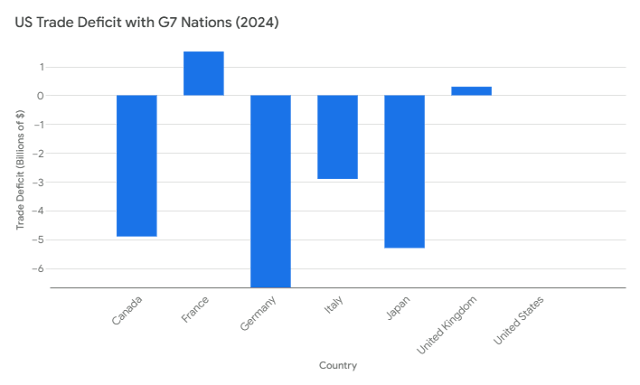President Trump has threatened to impose 25% tariffs on goods from Canada and Mexico starting Saturday, and 10% tariffs on Chinese goods. He cites a lack of cooperation from Canada and Mexico in controlling drug and migrant flows across the border.
Despite these countries claiming efforts to manage these issues, President Trump remains unimpressed while pointing out existing trade deficits with these neighbors. Specifically, Canada's exports to the US are $429.6 billion while imports are $352.8 billion, creating a $45 billion deficit.
Canadian leaders have indicated that they might retaliate, while Mexico's President Claudia Sheinbaum has plans, A,B and C, in place but hasn't detailed them publicly.
President Trump, meanwhile, on second thoughts, has decided to lower tariffs on Canadian crude oil to 10% to avoid oil price spikes, acknowledging the impact of high energy costs on inflation. If Canada and Mexico respond with tariffs, it could harm the US economy, increase prices for US consumers, and potentially lead to consumer spending decreases; high energy costs that fuelled the inflation were a hot topic during the presidential campaign last year.
Economists warn that such tariffs might push Canada and Mexico into recession, with the US also facing economic repercussions. Regarding China, the 10% tariff is due to a massive $279 billion trade deficit and China's role in the supply of fentanyl precursor chemicals. This could make Chinese goods more expensive for US consumers and reduce sales for Chinese manufacturers.
The EU is also targeted with potential tariffs due to a $208.7 billion trade deficit, exacerbated by disputes over Greenland, where Mr Trump's interest in acquisition is met with Danish opposition.
Additionally, President Trump has threatened 100% tariffs on BRICS countries for moving away from the US dollar in international trade while seeking alternatives, which could severely impact those economies. Trump's strategy aims to reduce trade deficits, encourage more US imports, promote domestic production, and provide tax benefits to American companies. However, the potential for tit-for-tat trade wars could harm the global economy, suggesting a need for diplomatic solutions before situations escalate irreversibly.
Trump's strategy aims to reduce trade deficits, encourage more US imports, promote domestic production, and provide tax benefits to American companies. However, the potential for tit-for-tat trade wars could harm the global economy, suggesting a need for diplomatic solutions before situations escalate irreversibly.







